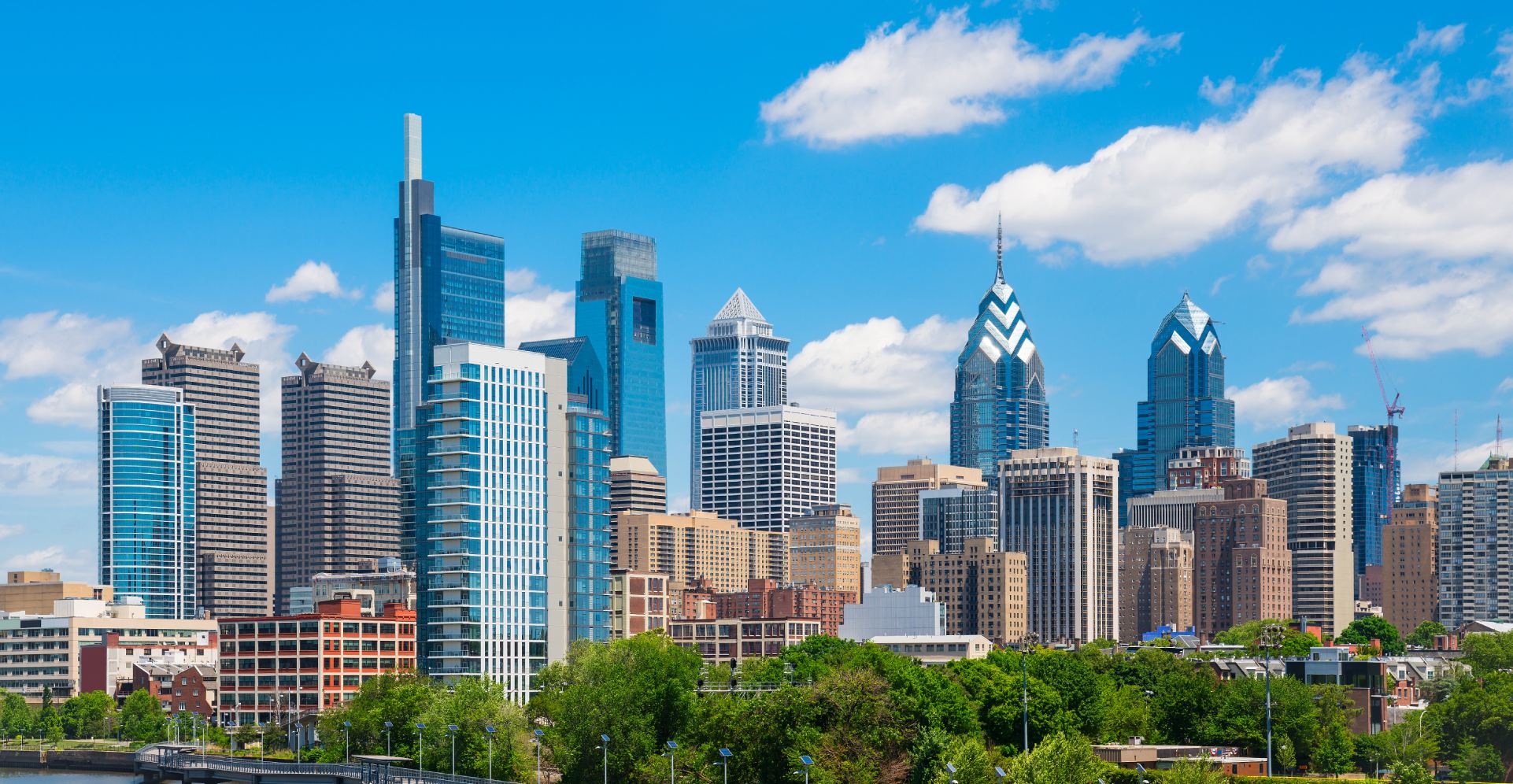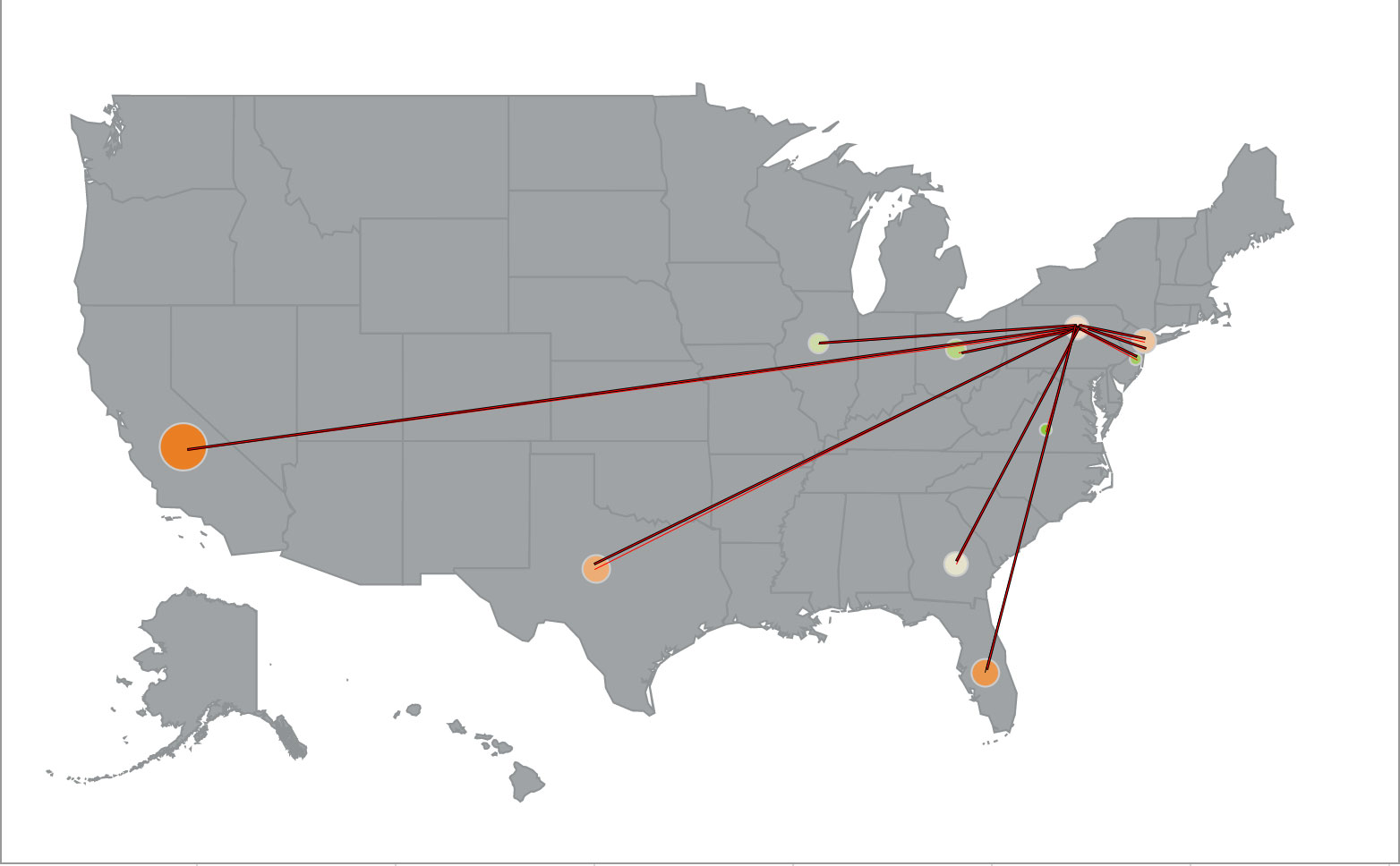Moving From Houston To Philadelphia
Are you considering a move from the vibrant city of Houston to the historic streets of Philadelphia? This relocation can be a significant change, but with the right guidance, it can also be a thrilling adventure. As two distinct cities with unique cultures, economies, and lifestyles, Houston and Philadelphia offer different experiences that can either excite or intimidate. From the Texan charm of Houston to the Liberty Bell's iconic presence in Philadelphia, this article will provide you with essential information to make your move as smooth as possible, covering everything from cost of living to job opportunities and more.

What to Expect When Moving from Houston to Philadelphia
When making the move from Houston to Philadelphia, there are several factors to consider. This guide will help you navigate the process, from understanding the cost of living difference to finding the right neighborhood for your lifestyle.
Cost of Living Comparison
One of the most significant factors to consider when moving from Houston to Philadelphia is the cost of living difference. Philadelphia has a higher cost of living compared to Houston, with a overall index score of 146.4 compared to Houston's 94.3. Housing, transportation, and food costs are all higher in Philadelphia, but the city also offers a higher average salary to compensate. Here is a breakdown of the cost of living comparison:
| Category | Houston | Philadelphia |
|---|---|---|
| Housing | 94.3 | 173.2 |
| Transportation | 96.2 | 124.1 |
| Food | 91.7 | 107.8 |
| Utilities | 102.2 | 120.9 |
| Healthcare | 88.3 | 101.2 |
Neighborhoods to Consider
Philadelphia is a city with many unique neighborhoods, each with its own character and advantages. When moving from Houston, it's essential to research the different areas to find the one that best fits your lifestyle. Here are a few neighborhoods to consider: Fishtown: A trendy neighborhood with a mix of old and new homes, known for its vibrant nightlife and arts scene. Fairmount: A charming neighborhood with historic homes, close to the city center and Fairmount Park. Rittenhouse Square: An upscale neighborhood with high-rise apartments and luxury homes, known for its shopping and dining scene.
Job Market and Economy
Philadelphia has a strong and diverse economy, with major industries in healthcare, education, and technology. The city is home to many major companies, including Comcast and Independence Blue Cross. The job market is competitive, but there are many opportunities available. The average salary in Philadelphia is around $63,000, which is higher than the national average.
Climate and Weather
Philadelphia has a humid continental climate, with cold winters and hot, humid summers. The city experiences four distinct seasons, with average temperatures ranging from 26°F in January (the coldest month) to 87°F in July (the warmest month). Be prepared for potential snowfall in the winter and occasional heatwaves in the summer.
Things to Do and See
Philadelphia is a city rich in history and culture, with many things to do and see. From visiting iconic landmarks like the Liberty Bell and Independence Hall to exploring the city's many museums and art galleries, there's always something to do. The city is also home to many parks and green spaces, including Fairmount Park, which offers hiking trails, picnic areas, and boating opportunities.
Is moving to Philadelphia a good idea?

Philadelphia is a city with a rich history, cultural attractions, and a blend of old and new architecture. While it may not be as popular as other major cities in the United States, it has its own unique charm and advantages. Here are some points to consider when deciding whether moving to Philadelphia is a good idea for you:
Pros of living in Philadelphia
Philadelphia offers a range of benefits, including:
- Affordability: Compared to other major cities on the East Coast, Philadelphia has a relatively low cost of living. The median home price is around $140,000, and the average rent for a one-bedroom apartment is around $1,300 per month.
- Cultural attractions: Philadelphia is home to many museums, galleries, and historical landmarks, such as the Philadelphia Museum of Art, the Franklin Institute, and Independence Hall.
- Food scene: Philadelphia is famous for its cheesesteaks, but it also has a thriving food scene with a variety of international cuisines, from Italian to Vietnamese.
Cons of living in Philadelphia
While Philadelphia has its advantages, it also has some drawbacks to consider:
- Crime rates: Some areas of Philadelphia have high crime rates, particularly in North and West Philadelphia. However, many neighborhoods are safe and have low crime rates.
- Traffic and parking: Philadelphia is known for its narrow streets and limited parking options, which can make driving and parking challenging.
- Weathers: Philadelphia has a humid continental climate with cold winters and hot, humid summers, which may not be appealing to everyone.
Job opportunities in Philadelphia
Philadelphia has a diverse economy with opportunities in various industries:
- Healthcare: Philadelphia is home to several major hospitals and medical centers, including the University of Pennsylvania Health System and Children's Hospital of Philadelphia.
- Education: Philadelphia is home to several top-ranked universities, including the University of Pennsylvania, Drexel University, and Temple University.
- Technology: Philadelphia has a growing tech industry, with many startups and established companies, such as Comcast and Microsoft, having a presence in the city.
Is Philadelphia more expensive than Houston?

Philadelphia and Houston are two major cities in the United States, each with its own unique characteristics and cost of living. When comparing the two cities, it's essential to consider various factors such as housing, food, transportation, and other living expenses.
Cost of Housing
The cost of housing is one of the most significant expenses in any city. In Philadelphia, the median home price is around $240,000, while in Houston, it's around $190,000. However, when it comes to renting, Philadelphia's average rent is higher than Houston's, with a one-bedroom apartment costing around $1,400 per month in Philadelphia compared to $1,100 in Houston.
Food and Transportation Costs
Food and transportation costs can also vary significantly between the two cities. In Philadelphia, the average cost of a meal at a mid-range restaurant is around $15 per person, while in Houston, it's around $12. When it comes to transportation, Philadelphia has a more comprehensive public transportation system, with a monthly pass costing around $96, while Houston's public transportation system is less extensive, with a monthly pass costing around $65.
Taxes and Utilities
Taxes and utilities are other essential expenses to consider when comparing the cost of living in Philadelphia and Houston. Pennsylvania has a higher state income tax rate than Texas, with a rate of 3.07% compared to 0% in Texas. Additionally, the average cost of utilities such as electricity, water, and gas is higher in Philadelphia, with an average monthly cost of around $150, compared to $120 in Houston.
In summary, while Philadelphia and Houston have some differences in cost of living, it's not necessarily accurate to say that one is more expensive than the other. The cost of living in each city depends on individual circumstances and lifestyle choices. However, here are some key points to consider:
- Philadelphia has a higher median home price than Houston.
- Houston has a lower average rent than Philadelphia.
- Philadelphia has a more comprehensive public transportation system than Houston.
- Texas has a lower state income tax rate than Pennsylvania.
- Philadelphia has a higher average cost of utilities than Houston.
Why are people moving to Philadelphia?

Philadelphia, the City of Brotherly Love, is experiencing a surge in population growth, with people moving to the city from all over the country. So, why are people moving to Philadelphia?
Affordability
One of the primary reasons people are moving to Philadelphia is its affordability. Compared to other major cities on the East Coast, such as New York City and Washington D.C., Philadelphia has a relatively low cost of living. The median home price in Philadelphia is around $140,000, which is significantly lower than many other major cities in the United States. Additionally, the cost of rent, food, and transportation is also relatively low in Philadelphia. This makes it an attractive option for people looking to relocate without breaking the bank.
Some examples of affordable neighborhoods in Philadelphia include:
- Fishtown: A trendy neighborhood with a mix of old and new homes, Fishtown has a median home price of around $120,000.
- Kensington: A diverse neighborhood with a mix of row homes and apartments, Kensington has a median home price of around $100,000.
- Port Richmond: A historic neighborhood with a mix of old and new homes, Port Richmond has a median home price of around $90,000.
Job Opportunities
Philadelphia is home to a thriving job market, with many major industries represented, including healthcare, education, and technology. The city is also home to many startup companies and entrepreneurs, making it an attractive option for people looking to start their own business. Some of the major employers in Philadelphia include:
- University of Pennsylvania: One of the top-ranked universities in the country, the University of Pennsylvania is a major employer in the city.
- Children's Hospital of Philadelphia: A world-renowned hospital, CHOP is a major employer in the healthcare industry.
- Comcast: One of the largest telecommunications companies in the country, Comcast is headquartered in Philadelphia.
Cultural Attractions
Philadelphia is a city rich in history and culture, with many world-class attractions and amenities. From the iconic Liberty Bell to the Philadelphia Museum of Art, there's no shortage of things to see and do in the city. Additionally, Philadelphia has a thriving arts and cultural scene, with many galleries, museums, and performance venues. Some of the top cultural attractions in Philadelphia include:
- The Liberty Bell: An iconic symbol of American independence, the Liberty Bell is a must-see attraction in Philadelphia.
- The Philadelphia Museum of Art: One of the largest and most renowned art museums in the country, the PMA features a vast collection of art and artifacts.
- Independence Hall: The birthplace of American democracy, Independence Hall is a must-visit for history buffs.
Is it expensive to move to Philadelphia?

The cost of moving to Philadelphia can vary greatly depending on several factors such as the distance of your move, the size of your household, and the services you require. However, here are some general estimates to give you an idea of what to expect.
Cost of Living in Philadelphia
The cost of living in Philadelphia is relatively affordable compared to other major cities in the United States. The city has a lower cost of living index score of 118.2, which is 10% lower than the national average. Here are some typical expenses you might incur in Philadelphia:
- Rent: The average rent for a one-bedroom apartment in Philadelphia is around $1,400 per month, while a three-bedroom apartment can cost around $2,000 per month.
- Food: The cost of food in Philadelphia is similar to the national average. You can expect to pay around $15-20 for a meal at a mid-range restaurant and $3-5 for a coffee.
- Transportation: Philadelphia has a well-developed public transportation system, and a monthly pass can cost around $96. If you prefer to drive, parking fees can range from $10-20 per day.
Moving Costs to Philadelphia
The cost of moving to Philadelphia can vary greatly depending on the distance of your move and the services you require. Here are some estimates for different types of moves:
- Local Move: A local move within the Philadelphia area can cost around $200-500 for a small move (less than 1,000 pounds) and $500-1,000 for a larger move (1,000-5,000 pounds).
- Long-Distance Move: A long-distance move from another state can cost around $2,000-5,000 for a small move and $5,000-10,000 for a larger move.
- International Move: An international move can cost around $5,000-10,000 for a small move and $10,000-20,000 for a larger move.
Tips for Moving to Philadelphia on a Budget
If you're moving to Philadelphia on a budget, here are some tips to help you save money:
- Downsize Your Belongings: The less you have to move, the less you'll pay. Consider selling or donating items you no longer need.
- Choose an Affordable Neighborhood: Philadelphia has many affordable neighborhoods to choose from, such as Fishtown or Kensington. Do your research to find a neighborhood that fits your budget.
- Use a Portable Storage Container: Portable storage containers can be a cost-effective alternative to traditional moving companies.
FAQ
What are the main differences in cost of living between Houston and Philadelphia?
The cost of living in Philadelphia is generally higher than in Houston. Housing costs, in particular, are significantly higher in Philadelphia, with the median home price being around $140,000 compared to Houston's $120,000. Additionally, taxes in Pennsylvania are higher than in Texas, which can eat into your paycheck. However, Philadelphia has a lower average commute time and traffic congestion, which can save you money on transportation costs. On the other hand, Houston has a lower overall tax burden and lower utility costs, which can help offset the higher housing costs.
How do the job markets in Houston and Philadelphia compare?
Both Houston and Philadelphia have strong job markets, but they differ in terms of industry. Houston is known for its energy industry, with many major oil and gas companies headquartered there. Philadelphia, on the other hand, has a more diversified economy, with major industries including healthcare, education, and technology. In terms of unemployment rates, Philadelphia's is slightly lower than Houston's. However, Houston has a higher average salary and more job opportunities in certain fields, such as engineering and manufacturing.
What are the cultural differences between Houston and Philadelphia?
Houston and Philadelphia have distinct cultural identities shaped by their history, geography, and demographics. Houston is a diverse, vibrant city with a strong Tex-Mex influence, reflected in its food, music, and arts scene. Philadelphia, on the other hand, is a city with a rich Colonial history, evident in its architecture, museums, and historical landmarks. Philadelphia also has a stronger East Coast influence, which is reflected in its attitudes, accents, and sports teams. While both cities have a strong sense of community, Houston's is more laid-back and casual, while Philadelphia's is more fast-paced and urban.
How do I plan and execute a successful move from Houston to Philadelphia?
To plan a successful move from Houston to Philadelphia, start by researching the city and its neighborhoods to find the best fit for your lifestyle and budget. Next, sort and purge your belongings to minimize moving costs and stress. Hire a reputable moving company to handle the logistics of the move, and make sure to label and organize your belongings carefully. Finally, plan ahead for housing, employment, and healthcare in Philadelphia, and make sure to update your address with the USPS, banks, and credit cards. With careful planning and execution, your move from Houston to Philadelphia can be a smooth and successful one.